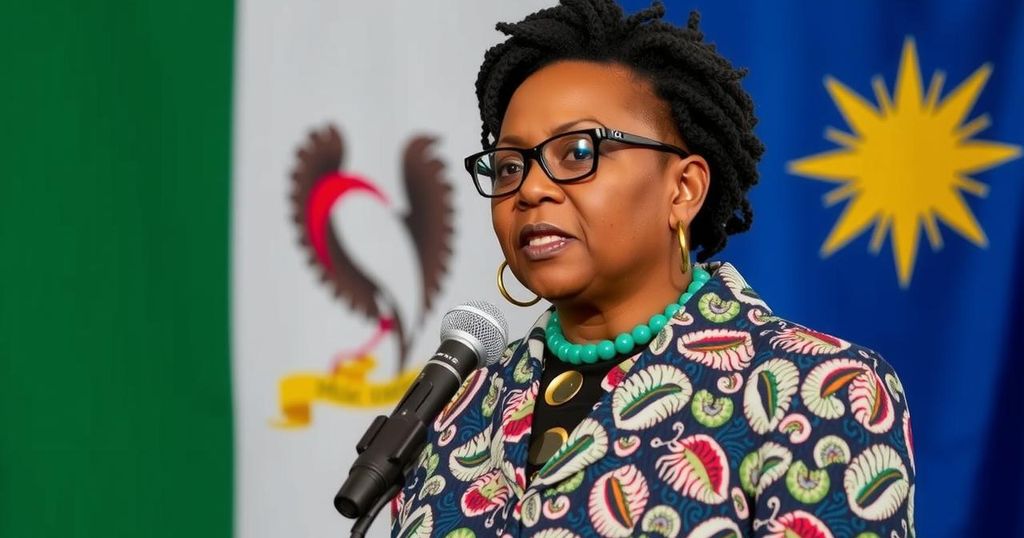Namibia Could Elect First Female President in Historic Elections
Namibia’s Vice President, Netumbo Nandi-Ndaitwah, may be elected as the country’s first female president in the upcoming elections. With over 1.4 million voters registered, SWAPO leads in early polls despite facing issues of corruption. Nandi-Ndaitwah has promised job creation and women’s rights advocacy, standing alongside challenges from rival political parties. This election marks a significant moment in Namibia’s political history and could reshape the landscape for women in leadership.
The upcoming presidential elections in Namibia present a historic opportunity as Vice President Netumbo Nandi-Ndaitwah could be elected as the nation’s first female president. With approximately 1.4 million registered voters and 15 political parties vying for power, preliminary results following early polls suggest that Nandi-Ndaitwah and her party, SWAPO, are leading. The party, which has been in power since 1990, faces challenges due to a loss of its previous dominance indicated by corruption allegations that impacted its credibility in the previous electoral cycle.
Political analyst Henning Melber warns that SWAPO must learn from past electoral failures and connect with younger voters who seek tangible results rather than emotional ties to historical liberation narratives. Nandi-Ndaitwah, now 72, aims to address critical issues such as youth unemployment, promising over 500,000 jobs funded by an estimated 85 billion Namibian dollars. Moreover, she is expected to prioritize women’s rights in her agenda, which includes reproductive rights and equal pay.
If elected, Nandi-Ndaitwah would align herself with other prominent female leaders in Africa, such as Ellen Johnson Sirleaf of Liberia. Political scientist Erika Thomas emphasized the need for Nandi-Ndaitwah to maintain transparency and accountability while promoting women’s participation in politics. Facing competition from parties such as the Independent Patriots for Change and the Affirmative Repositioning party, Nandi-Ndaitwah’s leadership could significantly reshape Namibia’s political landscape amid broader regional changes in governance dynamics.
The context of the upcoming elections in Namibia is pivotal as it not only presents a potential landmark in the nation’s political history but also reflects broader trends in regional politics across Southern Africa. Namibia’s independence in 1990 marked the beginning of SWAPO’s long-standing rule, but recent corruption scandals have eroded public trust and electoral support. The changing demographics, particularly the rising influence of younger voters, emphasize the need for political adaptation and a renewed focus on pressing social issues. This election could redefine the future leadership of Namibia and inspire similar movements in the region.
The imminent elections in Namibia are set to be historic, potentially resulting in the country’s first female president, a milestone that underscores changing political dynamics. Vice President Netumbo Nandi-Ndaitwah’s campaign is marked by promises of job creation and a focus on women’s rights amidst a backdrop of declining party dominance and electoral challenges stemming from past corruption. As political shifts continue in Southern Africa, the outcome of these elections will influence not only Namibia’s future but also set a precedence for female leadership in the region.
Original Source: abcnews.go.com




Post Comment